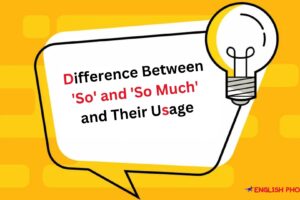You like several people around you would like to know if British English and American English are the same or different.
If you are really interested in the difference, continue reading this article…
When it comes to learning a language, there are many different theories that students may be interested in. One of the more popular theories is linguistic typology which focuses on the way that words can be grouped based on their similarity and difference. This helps students understand how languages evolve and change over time. Another theory that might interest you is social constructivism which posits that language is created by humans and reflects their cultural values and norms. It also shows light on how meaning is constructed through shared use among people.
There is a big difference between American English and British English that is particularly noticeable in the way that British vs American English words are pronounced. For example, the word ‘colour’ would be pronounced differently in these two dialects.
In American English, speakers would say ‘color’, while British people might use the pronunciation ‘kuh-luhj’. There are also many other differences that you may notice when speaking either of these languages. If you’re not familiar with these variations and want to learn more about them, then it’s best to consult with a language tutor or online course.
History of British and American English
The English language has a rich history that dates back to the early days of colonization in America. Early settlers from England brought with them their dialects and grammar patterns that blended together over time to form what is now known as American English. British English emerged later on, primarily as a result of differences in spelling and vocabulary between the two countries.
Read more: Learning English Can Make Your Travel Easy
Today, American and British English are both still spoken throughout the world, but they have developed differently over time due to various influences (such as television and movies). As a result, it can be difficult for non-native speakers to understand each other without learning about these regional variations first! Further, we will see some common grammatical rules and structure with the help of British English vs American English examples.
Difference between British and American English
British and American English differences are not so complex but some of the key concepts that are important in linguistics include phonology, grammar, syntax, and semantics. Phonology deals with the detailed study of sounds in a language while grammar focuses on rules governing how words are put together into phrases and sentences. Syntax refers to rules governing the sequence of elements within a sentence or speech unit such as clauses and phrases, while semantics measures what an utterance means.
Americans generally use more contractions in their speech than British English speakers. For example, “I’ll have a coffee” is usually pronounced as “I’ll catch a coffee”, while “can you open this jar?” is usually pronounced as “canna ya open dis jar?” Some other common contractions include “’round’ for ‘about’, ‘outta sight’ for a long way out, and ‘you betcha!’ instead of ‘[= absolutely] sure’.
Difference between Vocabulary, spelling, and Pronunciation Difference
There are a few key differences between British and American vocabulary and spellings. For one, words that end in -tion or -ship typically take an ending such as -ment or -ship in British English while the US generally prefers the word suffix form. Another example is nouns that are pluralized by adding an s (e.g., umbrellas instead of Umbrella) which is not common in UK English but is more commonly used there. On the other hand, verbs conjugated to show different tenses also tend to be spelled differently between Britain and America: for example, go vs gone in American English. We will see some common British English vs American English spelling differences.
Read more: 5 Best Grammar Rules for IELTS 2022
Spelling difference
- -t
(E.g. dreamt, leapt,) (British English)
-ed (E.g., dreamed, leaped) (American English)
2) -ise (E.g., organise, appetiser) (British English)
-ize (E.g., organize, Appetizer) (American English)
Vocabulary Difference
(British English) (American English)
University – College
Holiday – vacation
Chemist – drugstore
Football – Soccer
Flat – apartment
Pronunciation Difference British Pronunciation:
The stress is usually placed on the first syllable of words. For example, the word “pin” would be pronounced as a pin.
American Pronunciation:
The stress is usually placed on the second syllable of words. For example, the word “in” would be pronounced as in.
The two English dialects, British and American, differ in several ways. For example, Americans tend to say “cool” instead of “colder,” while the Britishers would say “coo-ol.” In terms of pronunciation, some vowels are pronounced differently too.
British English vs American English pronunciation is based on the tone and way of speaking which makes a difference in both languages. The letter ‘a’ is usually pronounced as in “father” in British accents but as the ee in American accents.
I hope you could know about British English and American English easily. In case there is still doubt left over, kindly let us know with the help of the comment box. Thanks for reading.







.jpg)



